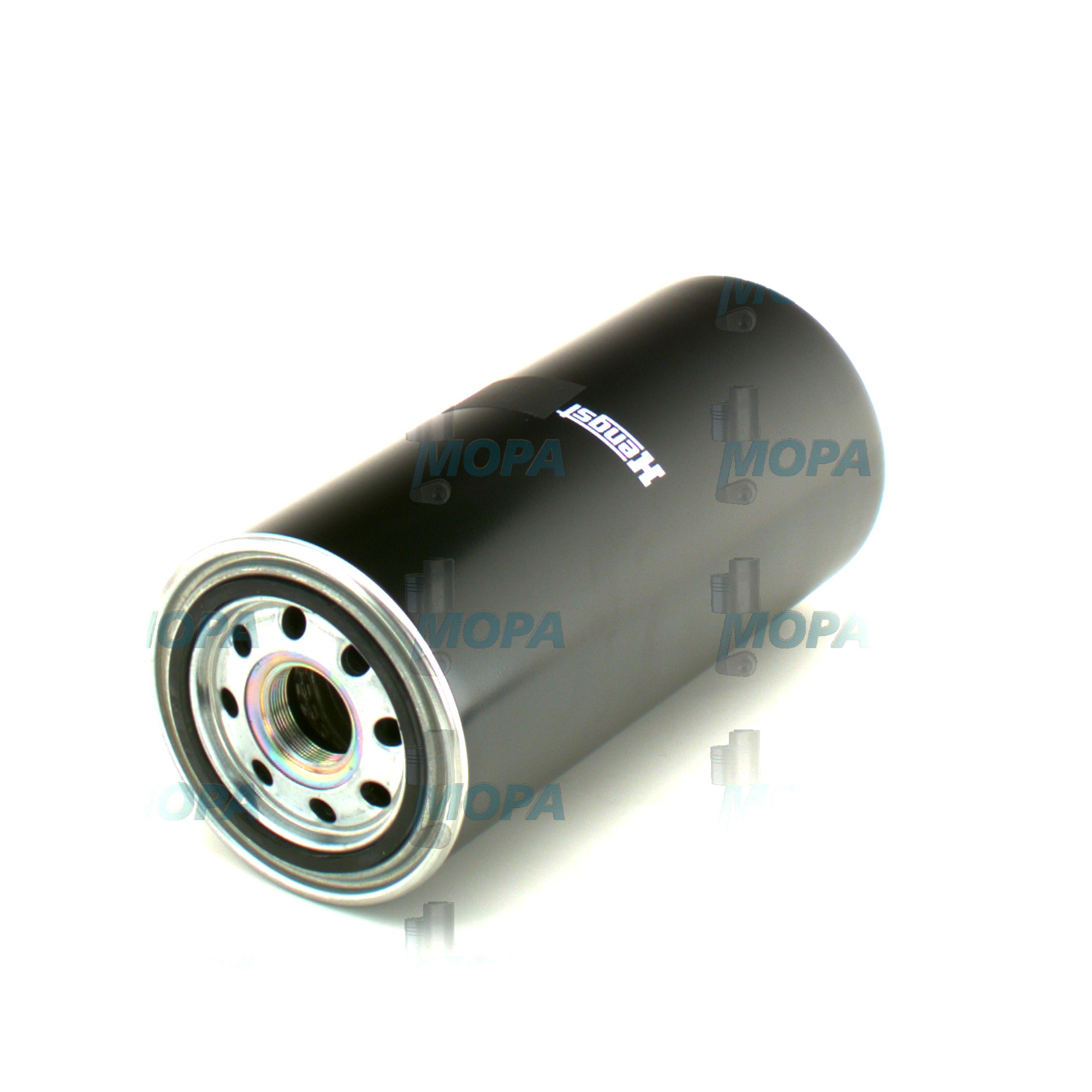LUBRICATION OIL FILTER – Filter category for reliable diesel and marine engines
Filters are critical consumable components that protect engines by removing contamination from fluids and air. Within this category, the LUBRICATION OIL FILTER is the centerpiece for safeguarding bearings, pistons, camshafts, and turbochargers from abrasive particles and sludge. By controlling cleanliness in the oil circuit, filters stabilize operating conditions, extend maintenance intervals, and reduce unplanned downtime across diesel engine, gas engine, and marine engine applications.
A modern engine depends on a precisely matched filtration system. A high-quality LUBRICATION OIL FILTER balances flow capacity with fine particle retention so that the oil film remains intact under cold starts, load steps, and high-temperature operation. For purchasers and technical decision-makers, the right filter choice is a direct lever for performance, lifecycle cost, and operational safety.
Technical function of the LUBRICATION OIL FILTER in diesel engine and marine engine applications
The LUBRICATION OIL FILTER is installed in the pressure side of the lube oil circuit, downstream of the pump and upstream of the main oil gallery. Its task is to capture hard particles (wear metals, soot agglomerates, sand), soft contaminants (varnish precursors, oxidation products), and residual manufacturing debris before the oil reaches precision clearances. Efficient separation reduces three-body abrasion, prevents scuffing, and keeps hydraulic lifters and control valves responsive.
Core design features include the filtration media, flow path, and protective valves. Depth media (cellulose or synthetic microglass) traps particles throughout the matrix, offering high dirt-holding capacity and stable differential pressure. Surface media provides sharp micron cut-off for tight cleanliness targets. Typical metrics are expressed as micron rating and Beta efficiency (per ISO 16889), for example β200 at 10 µm to achieve stable ISO 4406 cleanliness codes in high load-factor operations. A well-engineered bypass valve prevents oil starvation during cold starts or sudden viscosity spikes, while an anti-drainback valve maintains gallery fill after shutdown. Collapse resistance and burst strength protect against pressure excursions, especially in high-speed diesel engine platforms.
In marine engine service, the LUBRICATION OIL FILTER faces long duty cycles, fuel variability, and frequent load changes. Consistent filtration minimizes varnish on piston undersides, supports turbocharger bearing life, and keeps control oil channels free from lacquering. In stationary power or auxiliary generator sets, a steady cleanliness level stabilizes efficiency and reduces the rate of wear metal generation measured in oil analysis programs. In OEM parts configurations, filters are tuned to the pump curve and viscosity grade to maintain the design oil flow and pressure throughout the service interval.
- · Stable micron rating for controlled wear rates.
- · High Beta efficiency to protect critical clearances.
- · Optimized flow capacity for cold-start performance.
- · Robust bypass valve setting for pressure stability.
- · High dirt-holding capacity for extended intervals.
- · Media compatibility with mineral and synthetic oils.
- · Strong collapse/burst resistance for safety margins.
- · Reliable sealing materials (e.g., NBR/FKM) for temperature range.
- · Anti-drainback design for quick oil pressure build-up.
- · Traceable production and consistent quality control.
Why Filters, especially the LUBRICATION OIL FILTER, are vital for reliability and service life
Oil-borne contamination is a primary driver of engine wear. When a filter is undersized, aged, or damaged, particles circulate and accelerate bearing fatigue, ring and liner wear, and valve train pitting. Pressure drops increase, oil temperature rises, and the control of hydraulic components deteriorates. A stuck-closed bypass risks oil starvation, while a stuck-open bypass sends unfiltered oil through the system—both scenarios can lead to rapid degradation and costly downtime.
For marine engine operators, consequences include higher specific fuel consumption, loss of redundancy due to component failure, and unplanned port stays for repair. In power generation, unstable cleanliness shortens service intervals and erodes availability targets. Maintaining a robust LUBRICATION OIL FILTER program supports predictable condition-based maintenance, stable oil analysis trends, and longer overhaul intervals.
Advantages of OEM spare parts suitable for Filter components
Choosing OEM spare parts suitable for the Filter category ensures that each LUBRICATION OIL FILTER matches the engine’s hydraulic design and performance envelope. Filtration efficiency, differential pressure behavior, and bypass valve settings are aligned with the manufacturer’s specifications, preserving oil flow, pressure stability, and component protection under all operating modes.
Why OEM parts for the LUBRICATION OIL FILTER protect performance, budget, and service life
With OEM spare parts, the media architecture, resin systems, pleat geometry, and end-cap bonding meet strict validation criteria. This consistency translates into predictable cleanliness levels, fewer false alarms from pressure sensors, and reduced risk during peak loads. Drop-in dimensional accuracy minimizes installation time and leakage risk. Fleet-wide standardization simplifies procurement and logistics, while documented quality control and batch traceability improve compliance with class and audit requirements for marine engine operations. The result is a lower total cost of ownership: fewer unscheduled stops, optimized oil change intervals, and longer component life across diesel engine and gas engine assets.
MOPA – your partner for OEM LUBRICATION OIL FILTER spare parts
MOPA supplies OEM parts for LUBRICATION OIL FILTER applications with the speed, quality, and security that operators demand. Customers benefit from technically vetted selections for diesel and gas engines, rapid quotation and dispatch, and reliable global delivery for shipowners and power plant operators. MOPA emphasizes product traceability, consistent filtration performance, and professional support to match filters to specific engine models, viscosity grades, and operating profiles. This combination reduces risk in the supply chain and keeps critical equipment running.
Conclusion: Filters that secure performance and uptime
The Filter category—led by the LUBRICATION OIL FILTER—plays a decisive role in protecting engines, stabilizing performance, and extending service life. Selecting OEM spare parts suitable for this component ensures consistent cleanliness, correct hydraulic behavior, and dependable uptime across marine engine, diesel engine, and gas engine fleets.
Partnering with MOPA adds speed and security to procurement while maintaining the quality standards needed for demanding operations.





